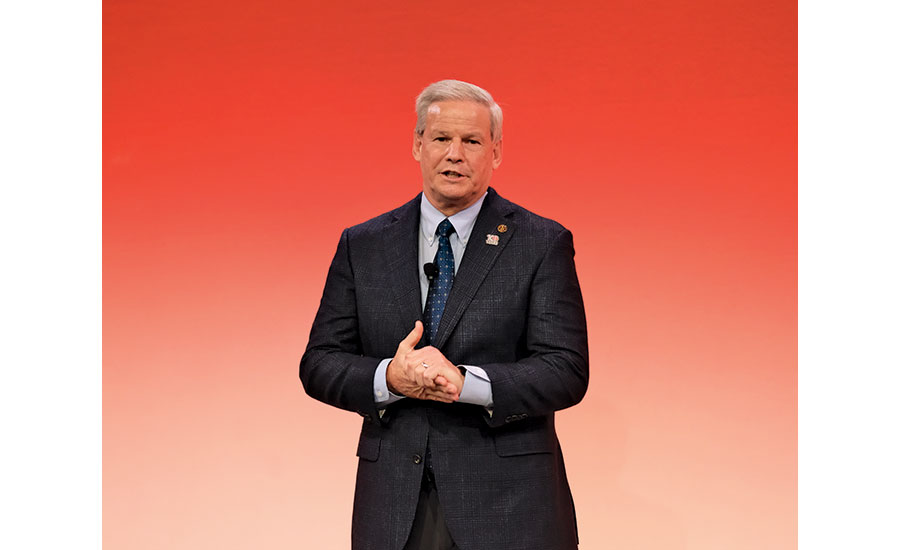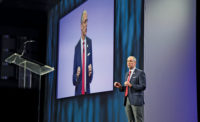Last year was a good year for the Associated General Contractors of America. AGC members got a boost from a business-friendly Trump administration that began rolling back regulations like the blacklisting rule and pushed through a tax-cut package that lowers the pass-through rate.
“It certainly has changed with the new administration,” 2017 AGC President Art Daniel told ENR during the group’s 99th annual convention in New Orleans late last month. “We had the opportunity to roll back some rules and executive orders that were an overreach, in our opinion.”
But AGC leadership says its work is not done. At the top of its advocacy list is the passage of an infrastructure bill, not only to provide more federal funding for projects but also for the permitting reforms included in the package. “When those things change, work will be released faster; that allows more work to move forward,” Daniel says.
The association says the White House has been receptive to its message. Jimmy Christianson, AGC’s vice president of external affairs, notes that the association’s priorities for the infrastructure bill correspond directly with what’s in the package proposed by the White House.
More than 20 recommendations from AGC align directly with the administration’s plan, including a one-agency, one-decision structure. Another involves key modifications to the complicated process for environmental permitting on infrastructure projects, especially megaprojects.
“To go through the environmental review through NEPA can take 1,600 days. Permitting can take 788 days,” Christianson says. AGC has been meeting privately with the Environmental Protection Agency and the Army Corps of Engineers to change that, he says.
EPA Administrator Scott Pruitt spoke at AGC’s National and Chapter Leadership meeting in September in Washington, D.C. Association leaders say that Pruitt took with him AGC’s flow chart of the complex federal permitting steps. Christianson says the chart is now on display at the EPA.
Christianson says that no matter how long the process takes or how in-depth the permitting documents are, if an environmental group such as Sierra Club or Friends of the Earth doesn’t like a project, it can still file a lawsuit to stop it. “There is no such thing as a litigation-proof environmental review,” he told convention attendees.
Although some conference speakers said they are skeptical that an infrastructure bill will pass this year, AGC is ramping up a social media campaign to get groups outside the construction industry to support the bill.
The group, Americans for Better Infrastructure, is sending pro-infrastructure messages to Congress, a strategy that worked in AGC’s push for tax reform.
“We somehow have to get them focused on [infrastructure] and keep them focused,” says incoming AGC President Eddie Stewart.




